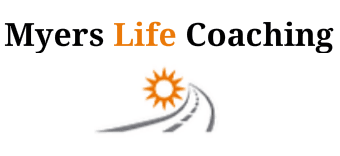Coaching as a Resource
“Your vision will become clear only when you can look into your own heart. Who looks outside, dreams; who looks inside, awakes.” – Carl Jung
Myers Career Coaching can provide assistance with career management and employee development at the individual level. Using individual coaching and assessments, we will guide the employees through the selection of the career path within the organization that best matches their interests and abilities. Once a career path has been chosen, the coach will help the employee prepare for their next promotion.
The career coach can administer assessments such as the DISC, MBTI, PVQ, and the Holland to help the employee gain clarity in the areas of motivators, interests, values and strengths. The feedback obtained from the assessments is essential in creating a career management plan. During the coaching engagement, the client will compare this information along with their experience and education to key leadership positions and determine the strongest fit. This process ensures that employees are matched with the correct positions, reducing the possibility of employee disengagement and turnover.
In addition to career pathing, we will assist in the creation of development plans. The steps outlined in the development plan will be based on the information gathered during a gap analysis. Comparing your current career level to the experience, skills, and education needed for the next promotion will give the coach and professional a clear picture of where to focus their coaching sessions. In addition, these session provide a non-judgmental external conversation that will allow for processing of work related concerns. Execution of the development plan during the coaching engagement results in promotion readiness.

Benefits of Succession Planning
Identifying and developing strong leaders for future roles is critical to the ongoing success of our workforce. Without an effective succession planning program in place, companies will face greater challenges than those incurred during the implementation of a program, which:
- Assists individuals to overcome their “stopping points”, obstacles & resistances to career success
- Helps define what is important and significant to the individual
- Uncovers and taps potential and creativity
- Increases self-confidence
- Coordinates career and personal life
- Increases the ability to cope with and welcome change and transitions
Given the possibility of increased profits, meeting the employee’s desire for career growth is both a financial and strategic advantage. Because growth and development are benefits highly sought after in a potential employer, organizations with highly publicized succession planning initiatives and career management programs become “employers of choice”, thereby making it easier to attract top talent and reduce turnover.
Most employers are unaware of how much turnover costs them each year or how to reduce this number. Assuming a fifteen percent turnover rate and turnover costs of twenty-five percent of an employee’s annual compensation, an organization with one thousand employees and an average compensation of $50,000 will incur $1,875,000 in costs each year. Given that half of all turnover is avoidable, this organization could save $937,500 each year by investing in employee retention strategies.
The Added Benefits of Using Myers Career Coaching as a Resource for Succession Planning Programs
Utilizing a Career Coach in your succession plan initiative allows leaders and Human Resources to focus on effectively managing and evaluating the program. An external career coach provides a confidential environment where the employees are free to discuss the challenges and opportunities they face in their careers and establish plans to overcome them.
One of the greatest benefits the coach offers is preparing the organization’s existing talent for future leadership roles. They take the organization’s human capital to the next level through the use of assessments, powerful questions, and individual development plans. Promoting from within provides benefits, such as:
• Reduced recruitment costs. The need for external recruiting is lessened for executive level position, which reduces headhunter fees (between 25% and 33% of the candidate’s total compensation) Ex. An executive placed by a headhunter with an annual compensation package of $200,000 would incur fees between $50,000 and $66,666.
• Reduction of executive compensation. According to Towers Perrin, external candidates are generally paid 20% to 30% more than internals that are promoted because externals needs a financial reason to make a career change.
• Promoting internal candidates offers the employer the benefit of knowing their track record, strengths, and their development needs. External candidates, unless personally known, only reveal as much or as little information as they deem appropriate, leaving the organization to rely on the interview process, assessments, and references to complete the picture.
Thriving succession planning initiatives balance the strategic direction of the organization with the career aspirations of its high potential employees. They also rely on external consultants and coaches to provide expertise, an objective perspective and additional resources.
Leaders who engage in coaching during the succession program have a clear direction of where they are going and how they are going to get there. In contrast, executives that are not offered coaching are not as well prepared to map out their career path or develop the skills they need for future promotions. Career coaching facilitates the process of creating successful careers and developing future leaders.



